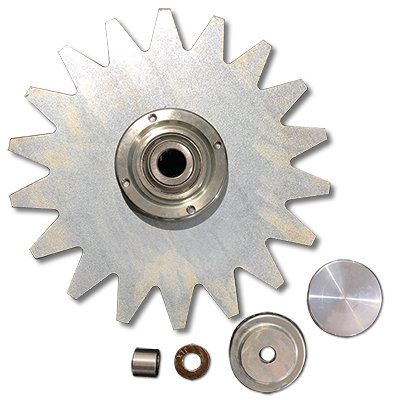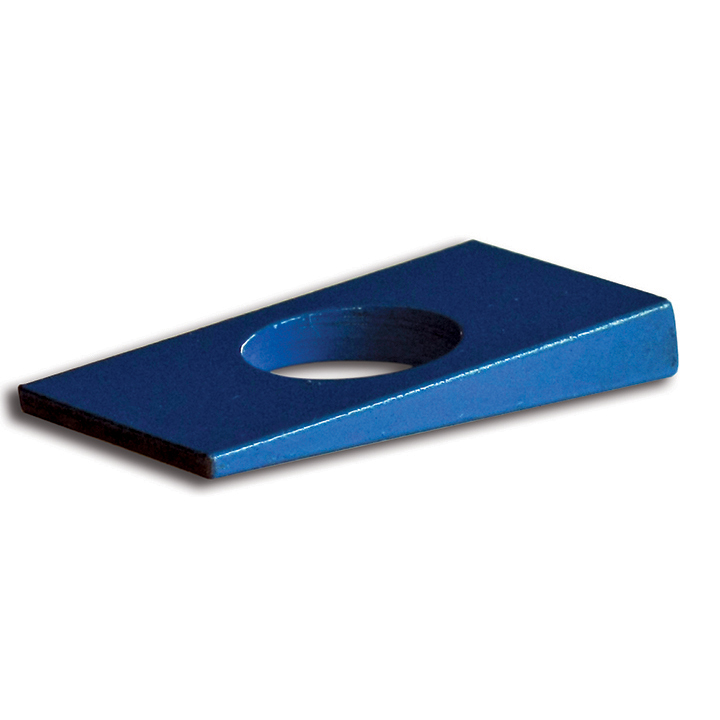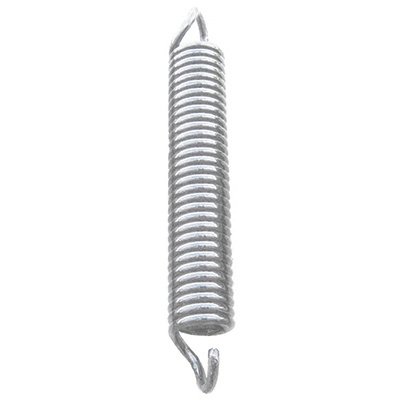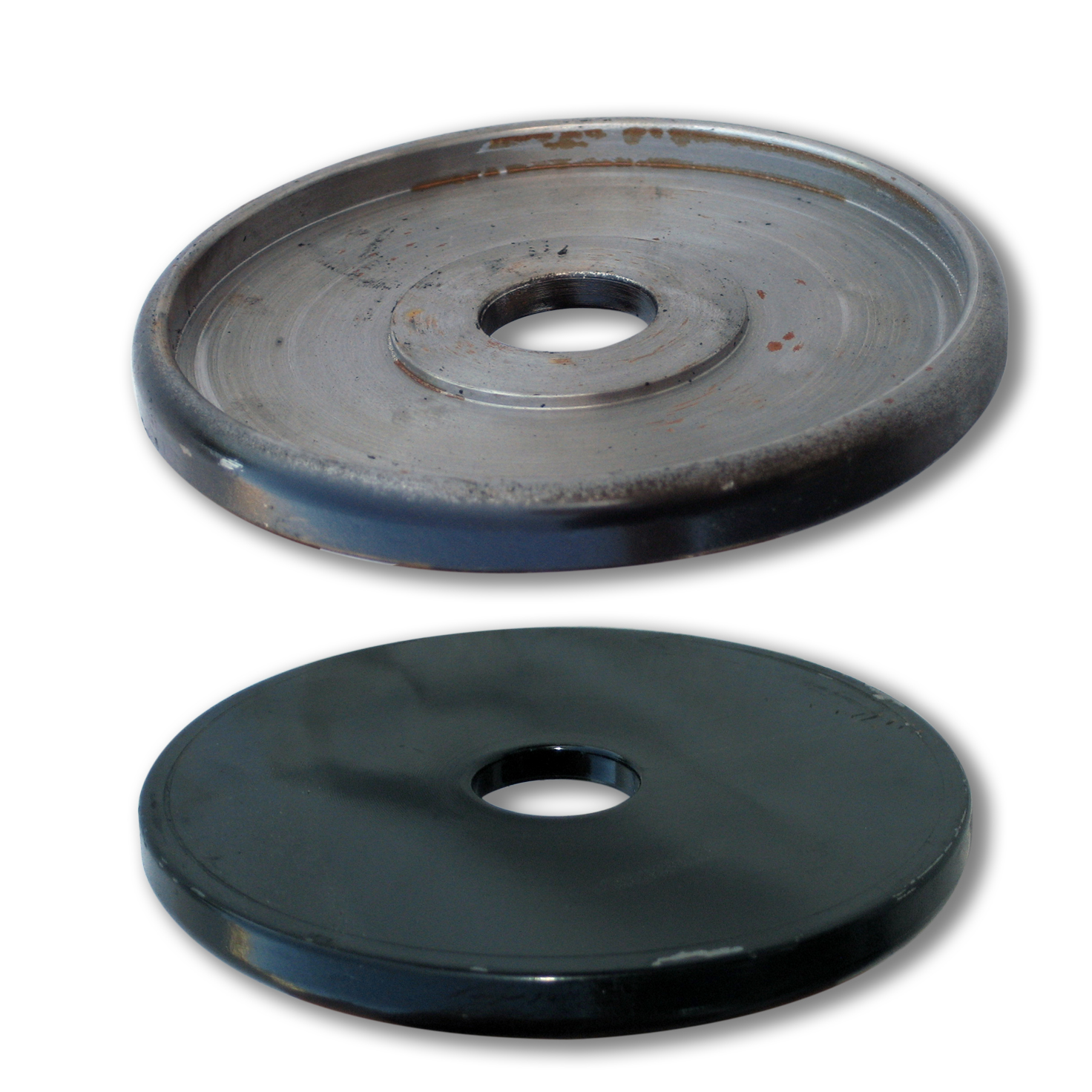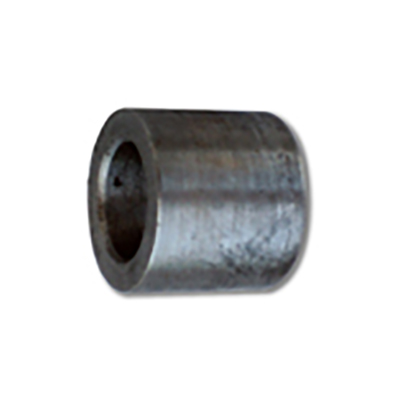Closing Wheels for Planters
All About Closing Wheels for Planters
Faster Emergence, More Vigor
- NEW: Bolt-on star wheel = cost-effective replacement stars
- Toe-out wedge built into shroud for easy adjustment!
- Same proven spoke design we’ve used for 20 years
- Zinc plating for even longer wear life
- Doesn’t overpack
- Aggressive furrow closing with self-limiting depth
- Creates ideal zone for crop emergence & rooting in a wide array of conditions
- Heavy-duty bearing with 5-year warranty (on bearing-type wheels)
- Low mud and stalk accumulation
- Ready to bolt on: no tearing brg-type OEM wheels apartT
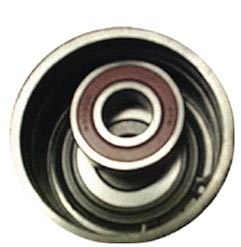
Sizing Things Up
The bearing from a competitor’s wheel setting inside the Thompson wheel’s housing for its huge bearing. Our bearing features a triple-lip seal, as well as our unique, patented shroud to protect the bearing face from fertilizer and water. We’re so confident in our bearing arrangement, we guarantee it for 5 years.
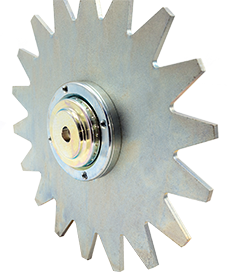
High-Carbon Steel
The Thompson wheel’s high-carbon spokes resist wear and bending for an exceptionally long life. The thinness of the wheel allows it to easily enter the soil, for excellent breakage of the sidewall.
The blunt tip & tapering sides of the spokes further assist in crumbling the sidewall. The tapering sides gradually increase the resistance the spoke encounters while operating in the soil. This limits the depth, as does the overall length of the spoke itself (considerably shorter than some other designs on the market). So you get just the right amount of sidewall shattering, without digging too deep. The thinness is also what prevents mud accumulation on the spokes. It simply has nowhere to gather.
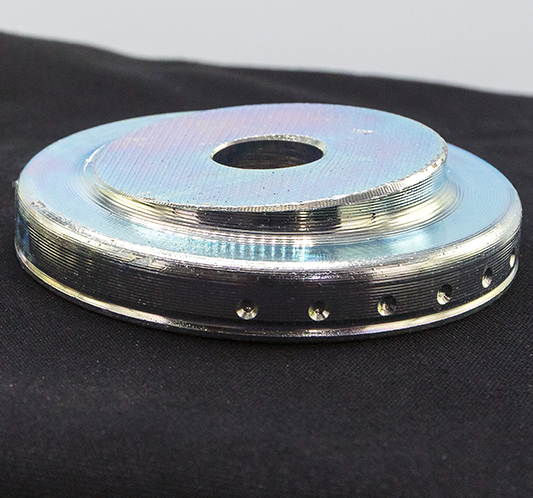
Built-in Toe-out
Exapta’s toe-out wedge is now built into the shroud for easy adjustment, from zero degrees, to 3° or 6°. Toe-out causes closing wheels (all types) to more actively engage and pull soil back into the furrow—the reverse of the opener blades prying soil apart to create the furrow.
No-till seeding (also known as zero-till) is a relatively new phenomenon, and more effective methods are continually being developed. In the U.S. & Canada, most planters and “no-till” drills are ill-suited to the task from the moment they’re built (they were engineered for tilled seedbeds). For instance, the original smooth closing wheels on all planters and no-till drills can overpack the furrow, especially when soils are damp, causing poor emergence and poor root penetration of the sidewall. Because of the soil structure in no-till, the solid wheel is ineffective at closing the furrow. To avoid the packing problem, as well as the poor furrow closing by smooth closing wheels, several aftermarket companies began offering spoked wheels to replace the original closing wheel.
New! 3-yr compilation of stand counts x row from Seeding Schools available. See how closing wheels and other attachments affect stands & root growth!
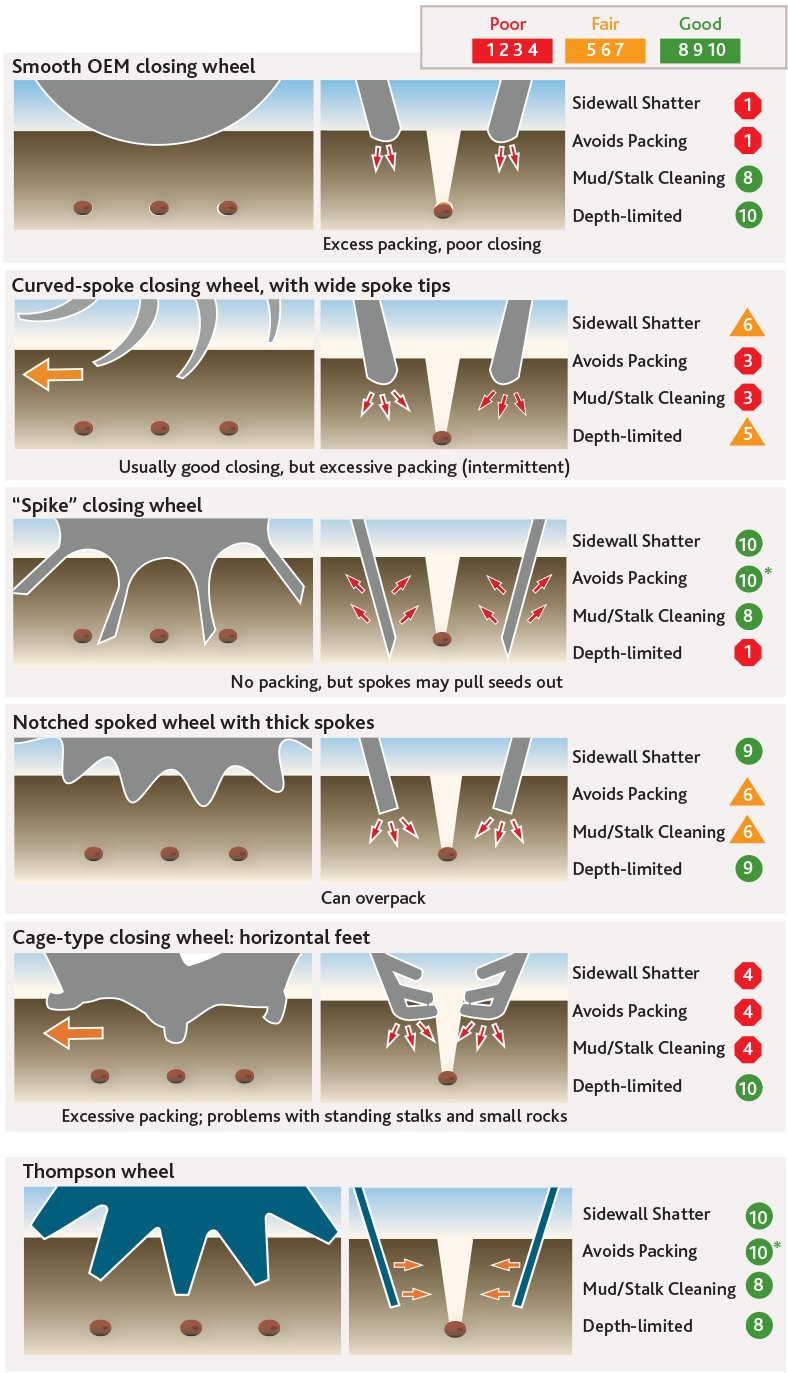
An honest assessment from numerous observations by 3rd-party scientists and farmers.
* Closing wheels that don’t pack the soil above the seed (a good thing) should not be used without a separate in-furrow firming device (Keeton seed firmer or seed-lock wheel).
Toe-Out Wedge Makes Thompson Wheels Even Better
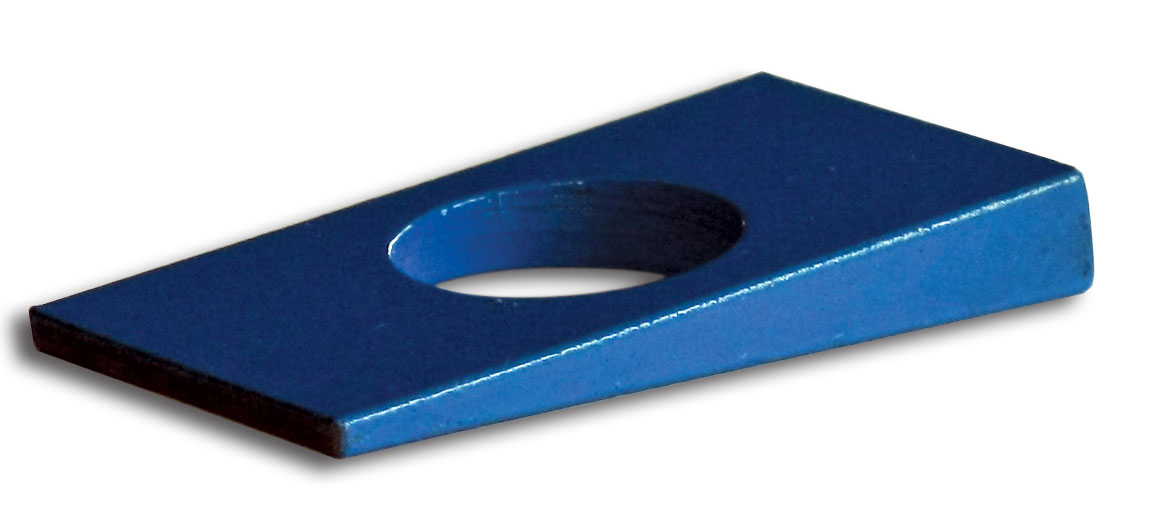
The toe-out helps all spoked wheels to more actively engage and gather soil from the fractured sidewall and pull it back into the furrow—sort of the reverse of the opener blades prying apart the soil while creating the furrow. It even helps the beveled cast closers (non-spoked).
Pictured: Toe-out wedge on late-model JD 1700-series brackets.
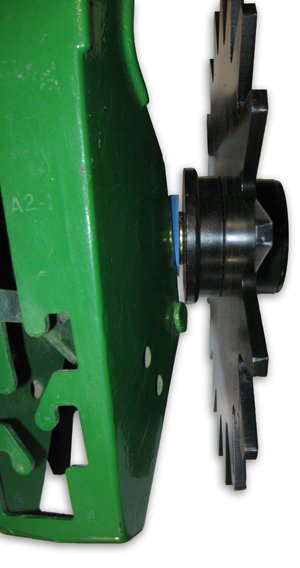


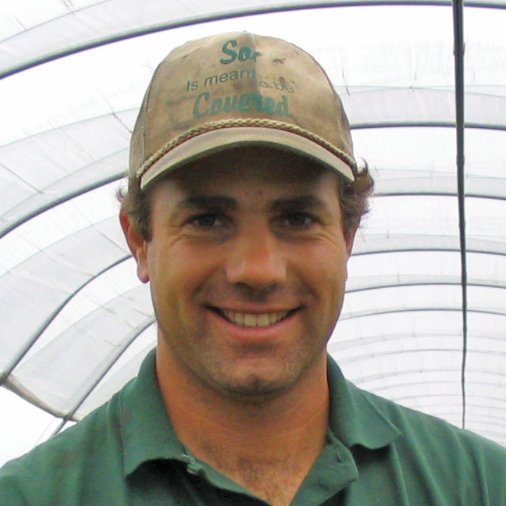







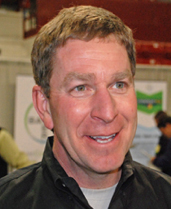


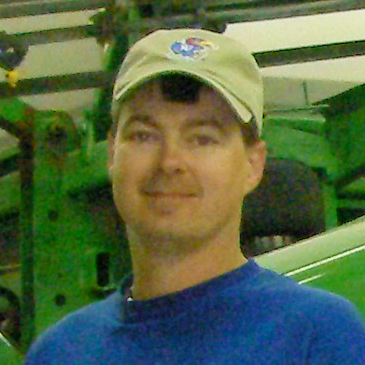

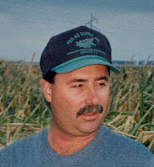
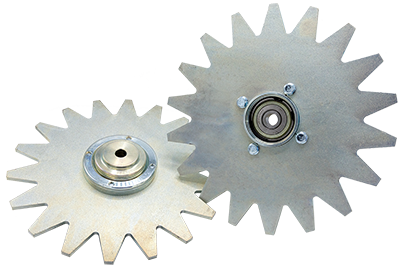
Closing Wheels for Planters in the News
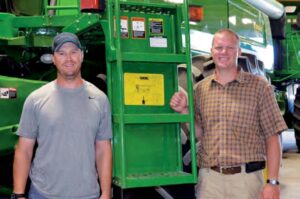 Featured in No-Till Farmer: For Ambitious No-Tillers: There’s No Place Like Home
Featured in No-Till Farmer: For Ambitious No-Tillers: There’s No Place Like Home
Almost to the Colorado border, these far western KS no-tillers credit some of their success to good seeding equipment set up — including Exapta’s Thompson wheels on their drill as well as their planter (although we do worry about the T-whls on their planter not being ran with a seed firmer).
Featured in No-Till Farmer: Using Residue Layers, Precision Tools to Boost No-Till Profitability
Todd Yackley says he uses Exapta Solution’s Thompson closing wheels on his planter as an aggressive furrow-closing tool with self-limiting depth.

